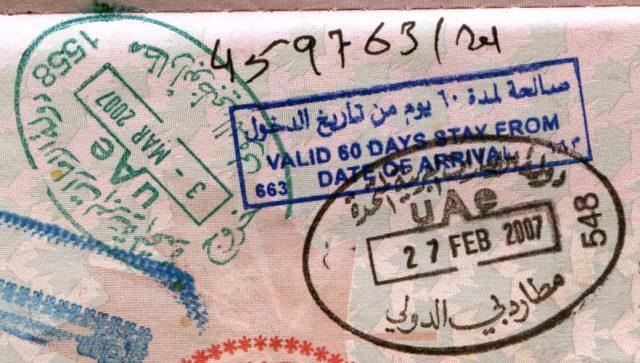
A second instalment of Wikileaks’ CIA series ‘Vault 7’ came out this week, following the first leak earlier this month. This new tranche, comprising 12 documents and codenamed ‘Dark Matter’, purports to outline how the CIA could hack Mac computers and iPhones that it had physical access to around a decade ago. The documents allege that the CIA would compromise a device’s firmware, which loads the computer’s operating system, meaning that the infection would be out of reach for antivirus scanners and most forensic tools. But there’s probably no need to ditch your iPhone just yet: Apple says that the exploits detailed in the leak are outdated and were resolved for iPhones in 2009 and Macs in 2013.
US House Intelligence Committee Chair, Republican Devin Nunes, has claimed that the US intelligence community ‘incidentally’ collected information on members of President Trump’s transition team, possibly including Trump himself, since the election. Republicans are jumping on this as vindication of Trump’s controversial claims of Obama’s wiretapping, while Democrats are enraged that Nunes went straight to the media and the White House with this new information before briefing the committee. While Nunes has apologised for his misguided priorities, it may be too late now to say sorry, with the The New York Times describing Nunes as ‘a lapdog in a watchdog role’ and House Minority Leader Nany Pelosi calling him a ‘stooge for the President of the United States’. This incident has to several calls, including from Senator John McCain, for a select committee or independent commission to run the enquiry from this point.
The UK and the US have both temporarily banned airline passengers travelling from some Middle Eastern airports from bringing on board devices larger than a smartphone, including laptops, tablets and cameras. The US Department of Homeland Security justified the decision by saying that they had intelligence suggesting that terrorists are looking at ‘smuggling explosive devices in various consumer items’. The ban will apply to nonstop flights arriving into the US from eight Muslim-majority countries: Egypt, Jordan, Kuwait, Morocco, Qatar, Saudi Arabia, Turkey and the UAE. The UK announced a similar ban, described by Downing Street as ‘necessary, effective and proportionate’. According to Transport Minister Darren Chester, Australia has no plans to follow suit.
Google and sister company Jigsaw are taking the fate of democracy into their own hands, releasing a suite of cybersecurity tools called ‘Protect Your Election’. The technology behind the announcement isn’t new, but what’s ground-breaking is that these tools are being offered for free on an application basis to news organisation, human rights groups and election monitoring sites. to protect the integrity of democratic processes. It’s hoped that tools such as Project Shield, Password Alert and 2-Step Verification will help ensure information access and accuracy in the lead up to elections in France, South Korea and Germany later this year. Nice one, Google!
North Korea is back in the spotlight this week, with the US reportedly preparing to accuse the hermit kingdom of the high profile cyber heist that stole US$81 million from Bangladesh’s Central Bank in February last year. The US Federal Attorney’s office in LA is looking into whether the North Korean government is responsible for the incident that exploited weaknesses in the global SWIFT transaction network. This new development comes only one month after cybersecurity researchers at Symantec indicated that fingerprints of the infamous APT Lazarus group have been found on the 2014 Sony Pictures hack, the Bangladesh heist and more recent malware campaign against banks and other institutions in 31 countries. A recent piece from TIME has indicated that the pariah government may have turned to state sponsored cybercrime in order to prop up its national economy in the face of crippling sanctions—so watch this space to see if North Korea increases its footprint in the cybercrime arena.
The debate around the use of encrypted messaging service WhatsApp has flared again around the world this week. The perpetrator of the tragic incident at Westminster Bridge allegedly sent a WhatsApp message immediately before driving into the pedestrians, which law enforcement are unable to access—a conundrum reminiscent of the FBI’s frustration over the Apple’s refusal to decrypt the iPhone of the San Bernadino shooter last year. British Home Secretary Amber Rudd said ‘we need to make sure that organisations like WhatsApp …don’t provide a secret place for terrorists to communicate with each other’. Meanwhile closer to home, Shadow Minister for Cyber Security Gai Brodtmann has criticised the Turnbull government for failing to seek clear guidelines from government security agencies on the use of WhatsApp by ministers and government employees.
Microsoft has finalised a custom version of its Windows 10 operating system for the Chinese government. Post-Snowden paranoia that US tech companies are synonymous with NSA backdoors has left companies like Microsoft struggling for Chinese business since 2013. Microsoft worked with the China Electronics Technology Group on the joint venture, but has declined to explain how the software has been altered.
Lastly, New Zealand has released its first annual Action Plan Annual Report on the implementation of its 2016 Cyber Security Strategy. Check it out to see how the Kiwis are progressing towards their goals of cyber resilience, cyber capability, addressing cybercrime and international cooperation.